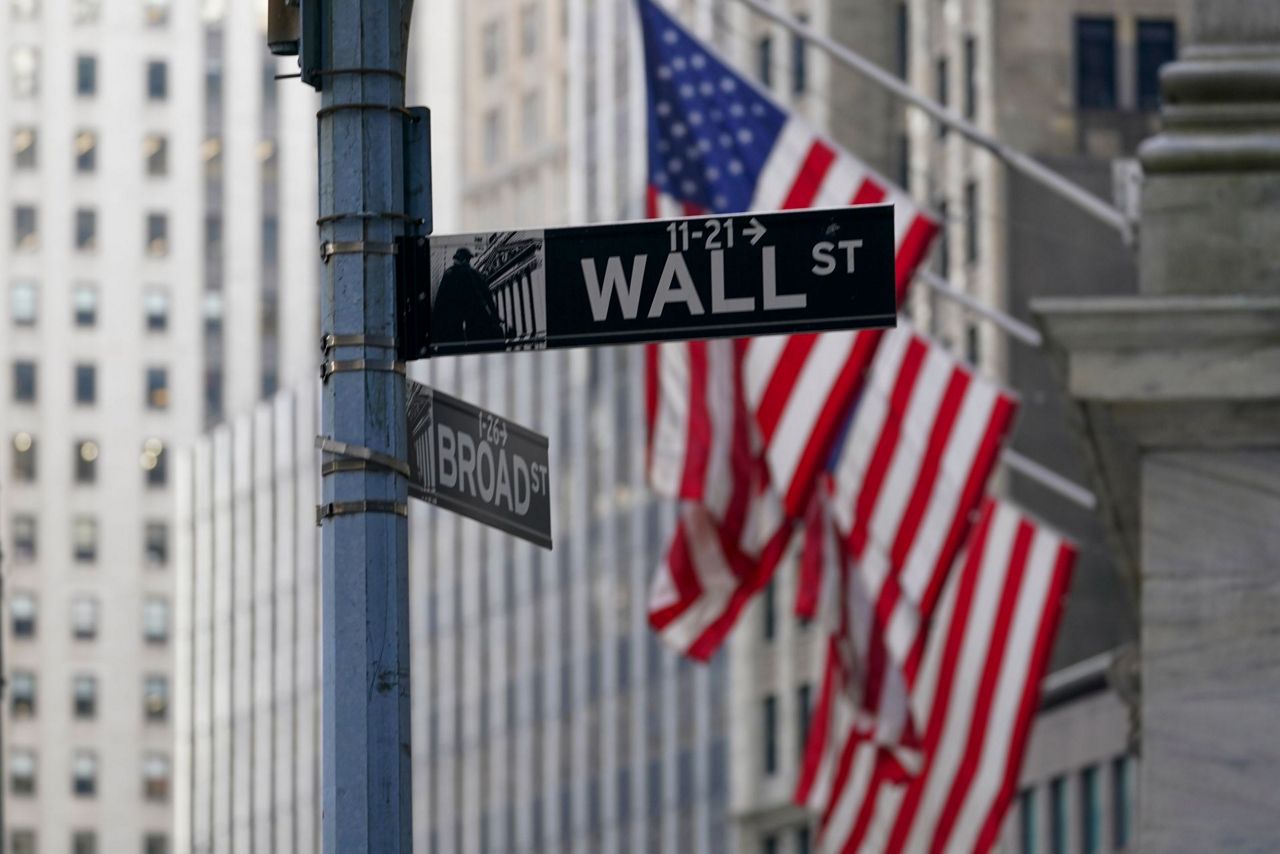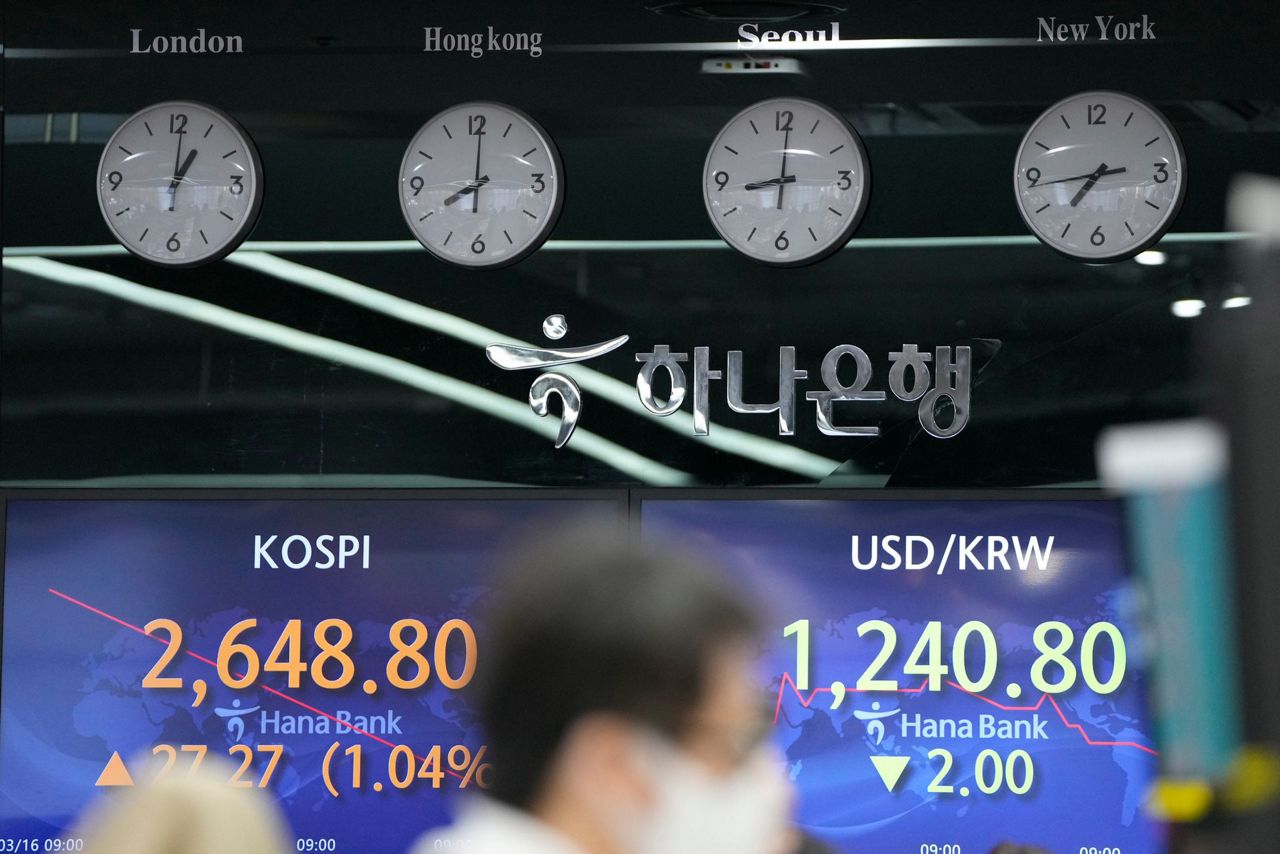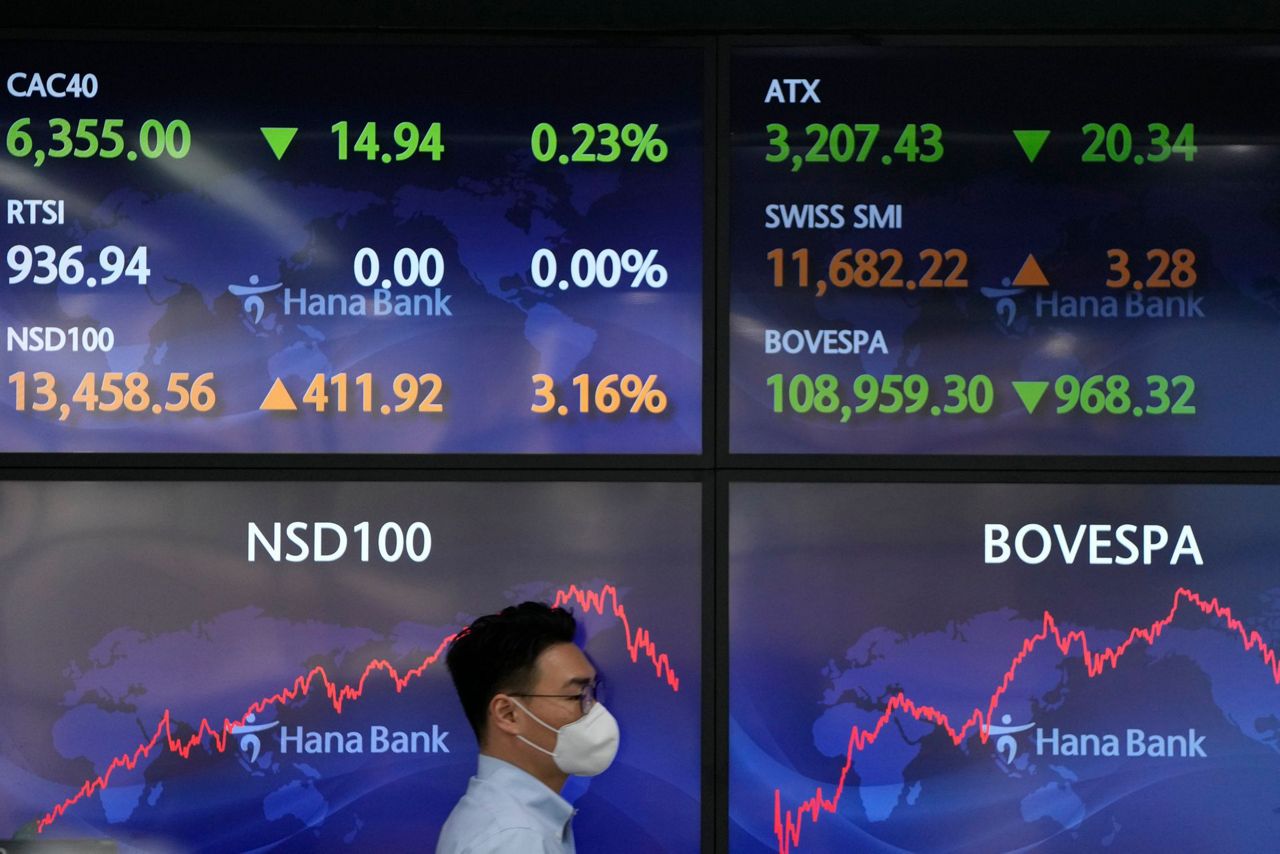Stocks rose in afternoon trading Wednesday and Wall Street added to its gains as markets gather hope that there may be better news on the horizon on inflation, the war in Ukraine and other worries that have been keeping investors unsettled.
The S&P 500 rose 1.7% as of 12:06 p.m. Eastern and put the benchmark index further in the green for the week after a rally on Tuesday. The Dow Jones Industrial Average rose 404 points, or 1.2% to 33,949 and the Nasdaq rose 2.8%.
Technology stocks had some of the biggest gains as investors shifted money into sectors that are considered riskier. Traditionally safe-play stocks, such as utilities and household goods makers, lagged the broader market.
The broad gains followed a solid jump for stocks internationally. Chinese markets soared overnight after Beijing promised help for that country’s struggling real estate industry and its internet companies. Hong Kong’s benchmark Hang Seng surged 9.1%.
Stocks in Europe rose as Russia and Ukraine projected optimism for another round of scheduled talks Wednesday.
Investors in the U.S. are awaiting the latest statement from the Federal Reserve this afternoon as the central bank shifts policy from maintaining ultra-low interest rates in order to try and tame persistently high inflation. The Fed is expected to raise its key short-term rate by 0.25 percentage points, which would mark its first rate increase since 2018.
Bond yields held relatively stable ahead of the latest Fed statement. The yield on the 10-year Treasury rose to 2.17% from 2.15% late Tuesday.
The Fed is trying to slow the economy enough to tamp down the high inflation sweeping the country, but not so much as to trigger a recession. It is part of a larger movement by central banks around the world to pull the plug on the support they poured into the global economy after the pandemic struck.
Inflation has hit its highest level in generations as the global economy recovers. Economists worry that could eventually curtail spending and hurt growth. The latest retail sales report from the Commerce Department shows that Americans slowed their spending in February on gadgets, home furnishings and other discretionary items as higher prices for food, gasoline, and shelter are eating up more of their wallet.
A list of concerns including inflation have made for volatile markets over the last few weeks. Stocks have been swaying sharply on a daily, sometimes hourly basis. That volatility will likely remain until investors get a better sense of where the economy is headed.
“The thing that is more controllable is increasing clarity around what the Fed's path looks like for rates and the balance sheet,” said Scott Ladner, chief investment officer at Horizon Investments. “Probably one of most important things Chairman Powell can do is to provide a sense of stability and predictability around both those things.”
Oil prices have mostly surged since late February amid concerns that the conflict in Ukraine will squeeze energy markets. Benchmark U.S. crude rose 0.5%, a relatively subdued move considering the gigantic swings it has made recently. Prices are up nearly 30% for the year, and the recent surge has pushed gas prices in the U.S. to record highs. That has increased concerns that inflation could worsen.
Elsewhere in the market, several stocks made some sharp moves on corporate news.
Starbucks rose 6.7% after President and CEO Kevin Johnson said he will retire next month. Former CEO and company founder Howard Schultz will replace him on an interim basis.
NortonLifeLock fell 11.9% after the security software maker said its buyout of Avast is undergoing additional review by U.K. regulators.
Copyright 2022 The Associated Press. All rights reserved. This material may not be published, broadcast, rewritten or redistributed without permission.





